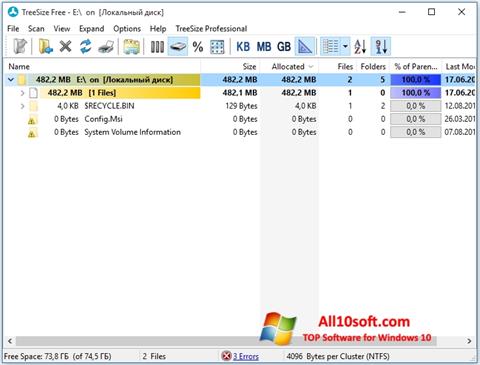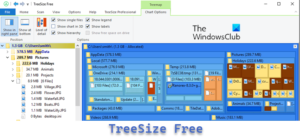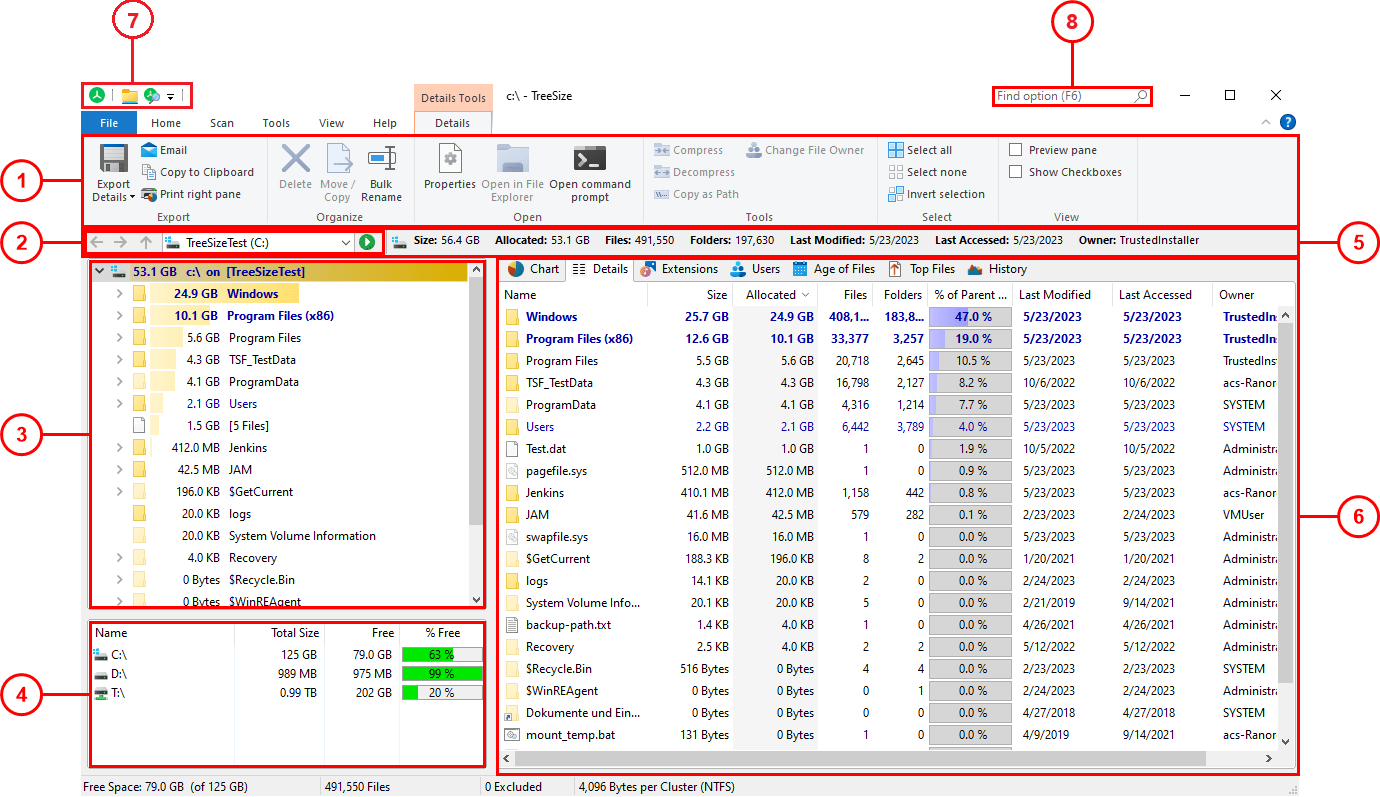

- #Treesize windows 10 how to#
- #Treesize windows 10 install#
- #Treesize windows 10 archive#
- #Treesize windows 10 windows 10#
- #Treesize windows 10 pro#
Trying this out on a test PC revealed that our Program Files folder has swallowed up some 30GB. Right-click a folder in Explorer, click TreeSize Free, and the program will open and display a list of all your subfolders, sorted according to how much drive space they're consuming. It pays to keep a careful eye on where your hard drive space has gone, then, and TreeSize Free is just the tool to help. Even navigating around in Explorer takes longer as the program has more work to do. The more files you have, the longer it takes to search your hard drive, to defragment it, and to scan for viruses, for instance. While they have a point, the reality is that hard drive clutter has a very real effect on your PC, no matter how much space you've got free. There's no need, they say - you're not going to run out of space for a very long time.
#Treesize windows 10 install#
#Treesize windows 10 pro#
Refer to the Microsoft Powershell move-item command documentation for additional details.Ĭomparing files or folders with Treesize Pro Refer to the Microsoft Powershell copy-item command documentation for additional details. Open Windows Powershell from the Start menu or use the Win + R keyboard shortcut to open the Run prompt and type powershellĬopy-item -path -destination.Connect to ResearchDrive from the Windows Computer with Powershell.LOG+ = log the data transfer progress (append to the existing log file) mt:16 = multithread using 16 threads (this is helpful for lots of small files) fft = allow upto a 2second time differance to allow for changes in file systems
#Treesize windows 10 archive#
Robocopy /copyall /fft /r:3 /w:5 /s /mt:16 /LOG+: /copyall = copy data, time, owner, security, and archive data Example: to perform a differential copy, where the directory contents from that do not exist in use.Refer to the Microsoft robocopy command documentation or SS64 - robocopy for additional details. Note: replace references to, , and with the folder locations you want to use such as C:\myfile, or R:\myfolder, or C:\mydatatransferlog.txt Refer to the Microsoft move command documentation for additional details. Refer to the Microsoft copy command documentation for additional details. Open a Windows Command Prompt from the Start menu or use the Win + R keyboard shortcut to open the Run prompt and type cmd.Note: replace references to and with the folder locations you want to use such as C:\myfile or R:\myfolder Transferring data from the command prompt To move the files rather than copy them, hold the right mouse button when dragging and dropping the data to the destination File Explorer window and then select move here.Drag and drop the selected files and/or folders to copy them to the destination folder.Select the files and/or folders you want to transfer in the source File Explorer window.Open a second File Explorer window and navigate to the destination directory that you want to transfer data to.Navigate to the source directory that you want to transfer data from.Open File Explorer from the Start menu or use the Win + E keyboard shortcut.

Connect to ResearchDrive from the Windows Computer.
#Treesize windows 10 windows 10#
Note: File Explorer was named Windows Explorer prior to Windows 10 or Windows Server 2016

#Treesize windows 10 how to#
This document explains how to transfer data to ResearchDrive with a Windows computer.


 0 kommentar(er)
0 kommentar(er)
